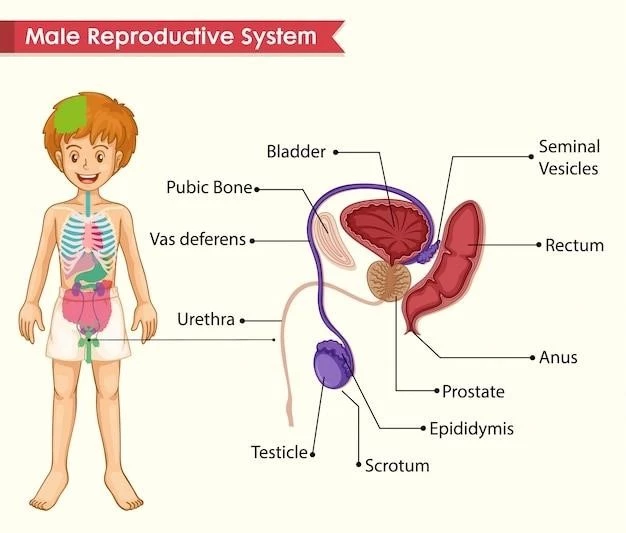McKusick Type Metaphyseal Chondrodysplasia
Introduction
McKusick Type Metaphyseal Chondrodysplasia is a rare genetic disorder that affects bone development, resulting in skeletal abnormalities and dwarfism. It falls under the umbrella of skeletal dysplasias, which are a group of conditions characterized by abnormal growth and development of cartilage and bones.
Individuals with McKusick Type Metaphyseal Chondrodysplasia typically present with growth retardation and various skeletal abnormalities such as short limbs, bowing of the legs, and irregular metaphyses (the growing parts of bones). This condition is caused by mutations in the PAPSS2 gene, affecting the production of a key enzyme involved in bone development.
Diagnosis of McKusick Type Metaphyseal Chondrodysplasia involves a combination of clinical evaluation, imaging studies like X-rays, and genetic testing to confirm the specific gene mutations. Understanding the inheritance pattern of this disorder is crucial for providing appropriate genetic counseling to affected individuals and their families.
Orthopedic management and supportive care play a key role in the treatment of McKusick Type Metaphyseal Chondrodysplasia. Early interventions such as physical therapy, orthopedic devices, and surgical procedures may help improve mobility and quality of life for patients with this condition.
Genetic counseling is essential for families affected by McKusick Type Metaphyseal Chondrodysplasia to understand the risks of passing on the genetic mutation to future generations. By providing information about the inheritance pattern and available testing options, genetic counselors can empower individuals to make informed decisions regarding their reproductive choices.
Understanding the Disease
McKusick Type Metaphyseal Chondrodysplasia, also known as McKusick dwarfism, is a rare genetic disorder that affects bone development and growth. This skeletal dysplasia is characterized by abnormalities in the metaphyses ⎼ the regions near the ends of long bones where growth occurs.
Individuals with McKusick Type Metaphyseal Chondrodysplasia typically exhibit short stature, short limbs, bowed legs, and a waddling gait due to the structural changes in their bones; The condition is caused by mutations in the PAPSS2 gene, which impair the synthesis of important compounds involved in bone growth.
The pathophysiology of McKusick Type Metaphyseal Chondrodysplasia involves disruptions in the process of endochondral ossification, where cartilage is replaced by bone during skeletal development. Mutations in the PAPSS2 gene lead to abnormal cartilage formation and inadequate bone growth, resulting in the characteristic features of this disorder.
Understanding the molecular mechanisms underlying McKusick Type Metaphyseal Chondrodysplasia is crucial for developing targeted treatment approaches that aim to correct the underlying genetic defects. Research efforts focus on identifying novel therapeutic strategies to improve bone formation and overall skeletal health in affected individuals.
By unraveling the complexities of this genetic disorder at the molecular level, scientists and clinicians strive to enhance diagnostic methods, optimize treatment interventions, and ultimately improve the quality of life for individuals living with McKusick Type Metaphyseal Chondrodysplasia.
Clinical Presentation
Individuals with McKusick Type Metaphyseal Chondrodysplasia present with a distinctive set of clinical features that characterize this skeletal dysplasia. The most prominent manifestation is short stature, with affected individuals typically exhibiting significantly shorter height than their peers.

Shortening of the limbs is a common finding in McKusick Type Metaphyseal Chondrodysplasia, with disproportionate dwarfism often observed. The legs may appear bowed, and individuals may have a waddling gait due to the skeletal abnormalities affecting their mobility.
In addition to the skeletal changes, affected individuals may experience joint pain and stiffness, particularly in the hips and knees. These symptoms can impact daily activities and mobility, contributing to functional limitations in individuals with McKusick Type Metaphyseal Chondrodysplasia.
Radiographic imaging studies play a crucial role in diagnosing McKusick Type Metaphyseal Chondrodysplasia, as they reveal the characteristic skeletal abnormalities such as irregular metaphyses, short long bones, and epiphyseal dysplasia. These findings, along with the clinical presentation, aid in confirming the diagnosis of this rare genetic disorder.
Early recognition of the clinical features associated with McKusick Type Metaphyseal Chondrodysplasia is essential for timely intervention and management of the condition. By identifying and addressing the skeletal abnormalities and associated symptoms early on, healthcare providers can improve the quality of life for individuals affected by this genetic disorder.
Diagnosis and Genetic Testing
Diagnosing McKusick Type Metaphyseal Chondrodysplasia involves a comprehensive evaluation combining clinical assessments, radiographic imaging, and genetic testing. Clinicians may initially suspect the condition based on the characteristic skeletal abnormalities seen on X-rays.
Radiographic findings in individuals with McKusick Type Metaphyseal Chondrodysplasia typically include irregular metaphyses, shortened long bones, and epiphyseal dysplasia. These visual cues provide important diagnostic clues that guide healthcare providers in confirming the presence of this rare genetic disorder.
Genetic testing plays a crucial role in identifying the specific mutations in the PAPSS2 gene responsible for McKusick Type Metaphyseal Chondrodysplasia. By analyzing the individual’s DNA, geneticists can pinpoint the genetic alterations that disrupt normal bone development and lead to the characteristic features of this condition.
Confirming the genetic basis of McKusick Type Metaphyseal Chondrodysplasia through molecular testing not only solidifies the diagnosis but also provides valuable information for genetic counseling and family planning. Understanding the underlying genetic defects enables healthcare providers to offer personalized care and support to affected individuals and their families.
Early and accurate diagnosis of McKusick Type Metaphyseal Chondrodysplasia is essential for implementing appropriate treatment interventions and initiating orthopedic management strategies to optimize outcomes and improve the overall quality of life for individuals living with this rare skeletal dysplasia.
Inheritance Pattern
McKusick Type Metaphyseal Chondrodysplasia follows an autosomal recessive inheritance pattern, meaning that an individual must inherit two copies of the mutated PAPSS2 gene ⎼ one from each parent ⏤ to develop the disorder. If both parents carry one copy of the mutated gene but do not show signs of the condition, they are considered carriers.
When two carriers of McKusick Type Metaphyseal Chondrodysplasia have children, there is a 25% chance with each pregnancy that the child will inherit two copies of the mutated gene and be affected by the disorder, a 50% chance that the child will be a carrier like the parents, and a 25% chance that the child will not inherit any mutated copies of the gene.
Genetic counseling plays a crucial role in helping individuals and families understand the implications of the autosomal recessive inheritance pattern associated with McKusick Type Metaphyseal Chondrodysplasia. By providing information about the risks of passing on the mutated gene, genetic counselors empower families to make informed decisions about family planning and reproductive options.
By educating families about the inheritance pattern of McKusick Type Metaphyseal Chondrodysplasia and the likelihood of passing on the genetic mutation to future generations, genetic counselors support individuals in navigating the complexities of genetic testing, family planning, and decision-making regarding the risk of having children affected by this rare skeletal dysplasia.
Understanding the intricacies of the autosomal recessive inheritance pattern of McKusick Type Metaphyseal Chondrodysplasia is essential for providing tailored genetic counseling services that address the unique needs and concerns of individuals and families affected by this genetic disorder.
Treatment and Orthopedic Management
The treatment and orthopedic management of individuals with McKusick Type Metaphyseal Chondrodysplasia aim to address the skeletal abnormalities, improve mobility, and enhance quality of life. While there is no cure for this genetic disorder, various interventions can help manage the symptoms and complications associated with the condition.
Orthopedic management plays a key role in the treatment of McKusick Type Metaphyseal Chondrodysplasia. Orthopedic surgeons may recommend interventions such as physical therapy to improve range of motion, strengthen muscles, and enhance overall function. Assistive devices like braces or orthotic supports can help stabilize joints and improve mobility.
In some cases, surgical procedures may be necessary to correct severe skeletal deformities or alleviate pain and discomfort. Surgical interventions such as osteotomies (bone cuts to realign bones), limb lengthening procedures, or joint surgeries may be considered to enhance the functional abilities and quality of life of individuals with McKusick Type Metaphyseal Chondrodysplasia.
Regular monitoring by a multidisciplinary team including orthopedic specialists, physical therapists, and geneticists is essential to tailor the treatment plan to the specific needs of each individual. Close follow-up care allows for early detection of potential complications and adjustments to the management strategies as needed.
Supportive care, including pain management, occupational therapy, and social services, is an integral component of the holistic approach to managing McKusick Type Metaphyseal Chondrodysplasia. By addressing the physical, emotional, and social aspects of care, healthcare providers can improve the overall well-being of individuals living with this rare genetic disorder.
Genetic Counseling
Genetic counseling plays a pivotal role in supporting individuals and families affected by McKusick Type Metaphyseal Chondrodysplasia. Genetic counselors specialize in providing information, guidance, and emotional support to help individuals understand the genetic basis of the disorder and make informed decisions regarding family planning and genetic testing.
For individuals diagnosed with McKusick Type Metaphyseal Chondrodysplasia, genetic counselors offer detailed explanations about the inheritance pattern of the condition and the likelihood of passing on the mutated gene to future generations. By clarifying the genetic risks and implications, genetic counselors empower individuals to navigate the complexities of genetic information.
Genetic counseling sessions may involve discussions about the option of genetic testing to identify the specific mutations in the PAPSS2 gene responsible for McKusick Type Metaphyseal Chondrodysplasia. Understanding the genetic makeup of the disorder can provide valuable insights for healthcare management and family planning decisions.
Family planning discussions in genetic counseling sessions may focus on reproductive options, prenatal testing, and the emotional impact of having a child with McKusick Type Metaphyseal Chondrodysplasia. By addressing the psychosocial aspects of genetic conditions, genetic counselors offer holistic support to individuals and families affected by this rare skeletal dysplasia.
Through compassionate and informative genetic counseling services, individuals can gain a deeper understanding of McKusick Type Metaphyseal Chondrodysplasia, its genetic underpinnings, and the available resources for managing the condition. By fostering open communication and providing personalized guidance, genetic counselors play a vital role in empowering individuals to make informed choices about their health and reproductive future.
In conclusion, McKusick Type Metaphyseal Chondrodysplasia is a rare genetic disorder characterized by skeletal abnormalities, growth retardation, and dwarfism. Understanding the disease’s molecular basis, clinical presentation, diagnosis, and treatment options is essential for providing comprehensive care to individuals affected by this condition.
Diagnosis of McKusick Type Metaphyseal Chondrodysplasia involves a multidisciplinary approach, including clinical evaluation, radiographic imaging, and genetic testing to confirm the specific gene mutations responsible for the disorder. Early recognition and accurate diagnosis pave the way for tailored treatment interventions and orthopedic management strategies to address the skeletal manifestations.
The autosomal recessive inheritance pattern of McKusick Type Metaphyseal Chondrodysplasia highlights the importance of genetic counseling in guiding families through the complexities of hereditary conditions. By offering information, support, and resources, genetic counselors help individuals make informed decisions about family planning and genetic testing.
Orthopedic management plays a crucial role in optimizing the quality of life for individuals with McKusick Type Metaphyseal Chondrodysplasia. Through a combination of conservative measures, surgical interventions, and supportive care, healthcare providers aim to alleviate symptoms, improve mobility, and enhance overall well-being.
In closing, the comprehensive management of McKusick Type Metaphyseal Chondrodysplasia requires a collaborative effort involving healthcare professionals, genetic counselors, and support services. By fostering awareness, promoting research, and providing individualized care, we strive to improve outcomes and enhance the lives of those impacted by this rare genetic skeletal dysplasia.
